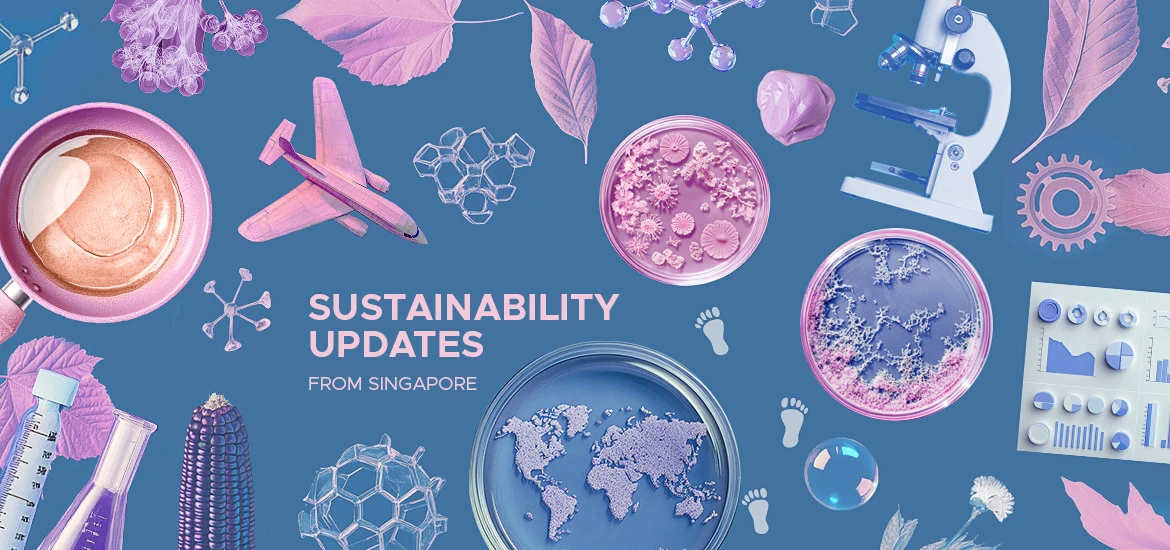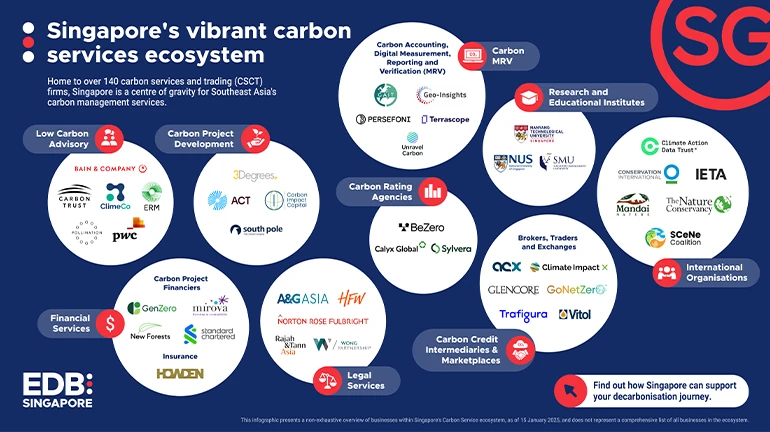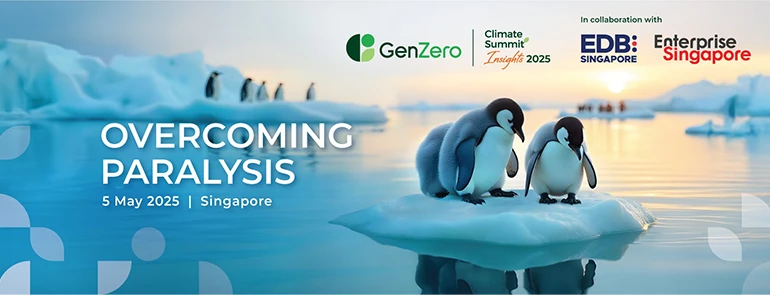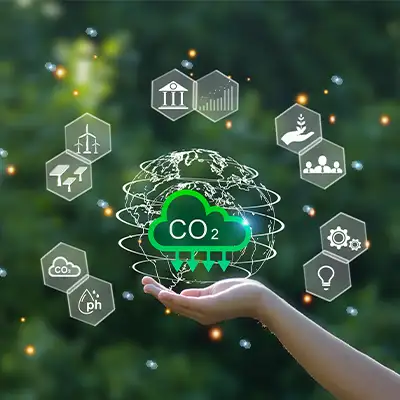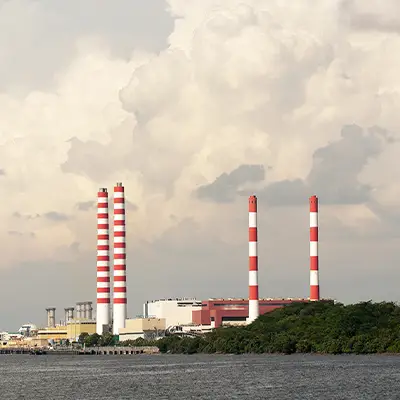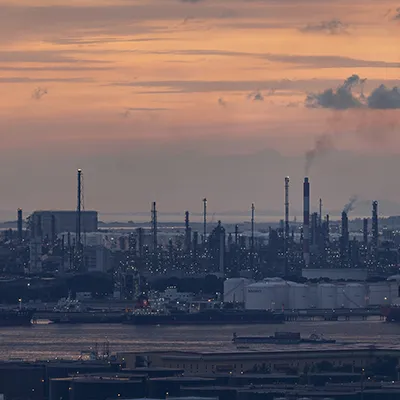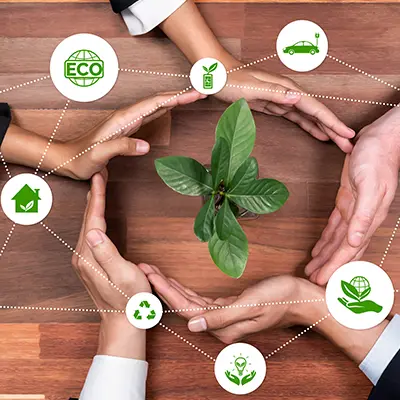Amid geopolitical and macroeconomic uncertainty, climate change remains a reality for the world. And Singapore is staying the course when it comes to climate action, ramping up efforts to reach net zero by 2050. Here’s a round-up of the latest news and announcements in the sustainability space:
1. Singapore sets out plan to meet 2030 climate targets; releases new emissions targets for 2035
Singapore is expecting a further reduction of its emissions targets to 45-50 million tonnes (Mt) by 2035 as outlined in its latest climate targets submission to the United Nations in February. This comes shortly after Singapore’s plans to peak emissions at 64 Mt in 2028, before declining to about 60 Mt in 2030. These progressive targets place Singapore on a linear path toward achieving net zero by 2050.
Singapore has also publicly detailed how it plans to meet its climate targets. To overcome domestic resource limitations, Singapore is actively pursuing international collaborations, including agreements with regional neighbours, and cross-border carbon capture projects. The three key measures with the highest emissions reduction potential are industrial energy efficiency initiatives, carbon capture technology, and renewable energy imports. Together, these could reduce emissions by about 12,000 kilotonnes by 2030 – about 20 per cent of Singapore’s total 2022 emissions.
2. National space office launches Earth Observation Initiative to address regional sustainability challenges using satellite technology
Led by the Office for Space Technology & Industry (OSTIn), the Earth Observation Initiative (EOI) will use satellite technology to tackle issues including food and water quality, disaster monitoring, and forestry management across the Asia-Pacific region.
It brings together 15 partners including international organisations, research institutions, and local agencies like the Singapore Land Authority. The EOI is part of a few new initiatives to drive Singapore’s push into the space sector, unveiled at the Global Space Technology Convention & Exhibition 2025.
3. New net zero initiatives highlighted in Budget 2025
S$5 billion top up to the Future Energy Fund, to study the potential of nuclear power
Singapore is doubling down on its commitment to clean energy. This S$5 billion top up to the Future Energy Fund to boost clean energy infrastructure brings the total to S$10 billion. The fund, initially established in Budget 2024, supports infrastructure investments for Singapore's energy transition, including the potential deployment of emerging energy technologies like hydrogen and nuclear power.
Energy experts note that this investment aligns with Singapore's broader strategy to achieve net zero carbon emissions by 2050 while addressing the challenge of limited domestic renewable energy resources.
The intent is to remove residual emissions (such as carbon dioxide) produced during industrial processes before it is being released into the atmosphere and stored elsewhere.
On improving energy efficiency, the government will invest S$300million over the next five years to fund relevant projects and test bed innovative solutions such as retrofits to energy-consuming systems and smart systems installation at offices, hospitals, and MRT stations.
Other initiatives
Additional initiatives include incorporating environmental sustainability considerations in government tenders and establishing energy efficiency standards for chilled water systems in new industrial facilities from April 2026. The government is also advancing coastal protection studies at Sentosa and the south-west coast by 2026, with implementation of protection measures to begin progressively from 2030.
4. Singapore to launch request for proposal to buy carbon offsets
Singapore will kickstart the process of buying carbon credits to offset emissions later this year. These credits are aligned with Article 6 of the Paris Agreement and will contribute to our targets of reducing emissions to 60 Mt by 2030 and between 45-50 Mt by 2035.
Additionally, Singapore will invest S$62.5 million for the Agency of Science, Technology, and Research (A*STAR) to develop a test-bedding facility for less mature low-carbon solutions such as carbon utilisation and hydrogen. The facility will help companies scale up solutions closer to commercial development.
5. Singapore and Bhutan to sign carbon credit transfer agreement
The implementation agreement establishes a framework for carbon credit cooperation under Article 6 of the Paris Agreement. It enables the transfer of carbon credits from mitigation projects and provides a structure for project developers to create initiatives aligned with international standards.
This marks Singapore’s third such agreement (earlier agreements were signed with Papua New Guinea and Ghana) and also marks Singapore's first implementation agreement with a carbon-negative country.
6. Industry moves
PacificLight Power to build S$1 billion hydrogen-ready power plant on Jurong Island by 2029
The 600-megawatt facility will be Singapore's largest and most efficient combined cycle gas turbine facility, and the first paired with a large-scale battery energy storage system. This project is part of Singapore's plan to have at least nine hydrogen-ready power plants by 2030.
Honeywell to establish Centre of Excellence (CoE) for sustainable buildings
Honeywell’s new CoE aims to reduce commercial building carbon emissions through AI and machine learning technologies. The CoE, which is set to begin operations this year, will help building operators monitor and optimise energy usage. This initiative supports Singapore’s goal of achieving net zero emissions by 2050, addressing the 20 per cent of carbon emissions currently attributed to buildings.
7. Here are some more recommended reads from this quarter:
Learn about Singapore's multi-pronged approach to climate mitigation
This is the third article of a series created in collaboration with the UNDP Global Centre for Technology, Innovation and Sustainability Development.
It explores the measures Singapore (as an alternative-energy disadvantaged country) is taking to achieve net-zero by 2050 and build an enabling ecosystem for the low-carbon economy.
Get an overview of Singapore’s carbon services and renewable energy ecosystems
